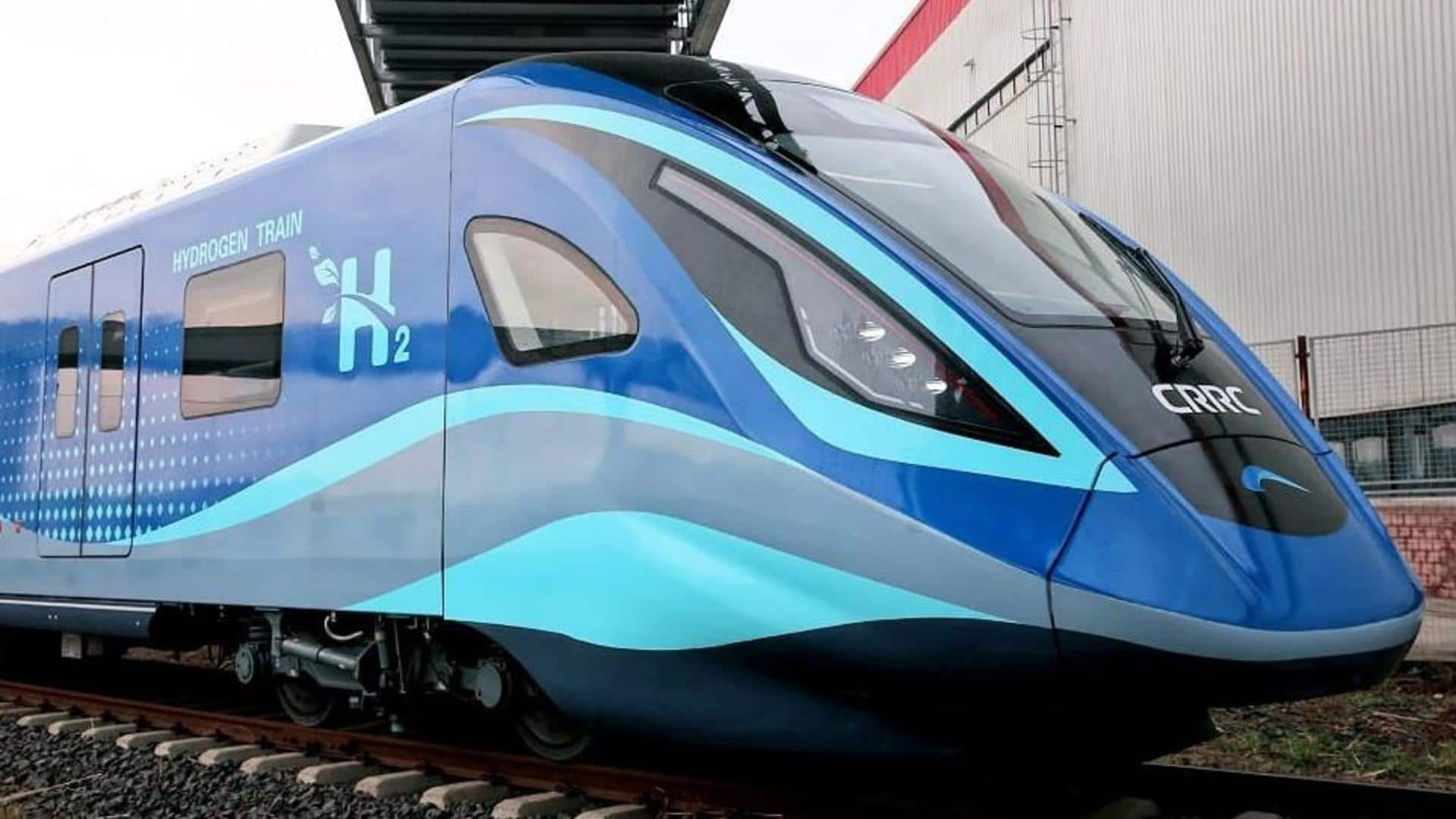
China introduces Asia's first hydrogen-powered train: Check top-speed and features
What's the story
Asia's first hydrogen-powered passenger train has been unveiled in China. It has been jointly developed by CRRC Changchun Railway Company and Chengdu Rail Transit. The vehicle can travel 500km back and forth in a single day and claims to reduce carbon dioxide emissions by more than 10,000kg per year. To note, the world's first hydrogen-powered train began services in Germany in August 2022.
Context
Why does this story matter?
Rising air pollution levels necessitate the discovery of sustainable alternatives for transportation. Using hydrogen seems like a promising one. In China, hydrogen trains can be used on non-electrified lines too, which aid in reducing infrastructure investment and maintenance costs for plying. Germany and China have already jumped on the sustainability bandwagon and it is time India joins the league too.
Details
A brief look at China's hydrogen train
China's new hydrogen-backed train utilizes the key core technology from the Fuxing bullet train. It has four coaches, a seating capacity of 1,502 passengers, and hits a top speed of 160km/h. Its built-in "hydrogen power" system has a battery life of 600km per charge. There is no need to worry about emissions as hydrogen is a zero-carbon renewable source of energy.
Information
What features does the train offer?
China's hydrogen train comes with smart driving features like start and stop, autonomous wake-up, and return to depot. Intelligent monitoring systems and sensors, big data analysis to ensure proper safety standards, and 5G train-to-ground communication for multi-network integration are also available.
Process
How is energy for running the train created?
Instead of a catenary power supply system (overhead wires for supplying electricity to trains), the hydrogen train uses an energy supply mode that combines a hydrogen fuel cell with a supercapacitor. An electrochemical reaction between hydrogen and oxygen in the fuel cell generates energy and a by-product in the form of water. The reaction process is stable in nature and noise emissions are low.
Plans
India will also get hydrogen-powered trains by 2023-end
Closer home, Union Railway minister Ashwini Vaishnaw has announced that hydrogen-fueled trains will ply on narrow gauge heritage routes by December 2023. These trains will be called Vande Metro and shall replace the current trains built in the 1950s and 1960s. They will run on routes like Darjeeling Himalayan Railway, Matheran Hill, Niligiri Mountain, Kalka Shimla, Kangra Valley, Marwar-Devgarh Madriya, and Bilmora Waghai.